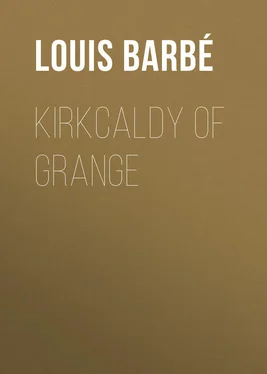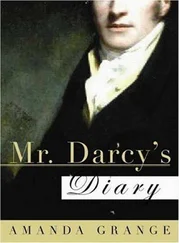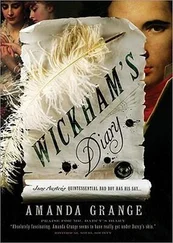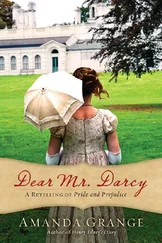Louis Barbé - Kirkcaldy of Grange
Здесь есть возможность читать онлайн «Louis Barbé - Kirkcaldy of Grange» — ознакомительный отрывок электронной книги совершенно бесплатно, а после прочтения отрывка купить полную версию. В некоторых случаях можно слушать аудио, скачать через торрент в формате fb2 и присутствует краткое содержание. Жанр: foreign_antique, foreign_prose, на английском языке. Описание произведения, (предисловие) а так же отзывы посетителей доступны на портале библиотеки ЛибКат.
- Название:Kirkcaldy of Grange
- Автор:
- Жанр:
- Год:неизвестен
- ISBN:нет данных
- Рейтинг книги:5 / 5. Голосов: 1
-
Избранное:Добавить в избранное
- Отзывы:
-
Ваша оценка:
- 100
- 1
- 2
- 3
- 4
- 5
Kirkcaldy of Grange: краткое содержание, описание и аннотация
Предлагаем к чтению аннотацию, описание, краткое содержание или предисловие (зависит от того, что написал сам автор книги «Kirkcaldy of Grange»). Если вы не нашли необходимую информацию о книге — напишите в комментариях, мы постараемся отыскать её.
Kirkcaldy of Grange — читать онлайн ознакомительный отрывок
Ниже представлен текст книги, разбитый по страницам. Система сохранения места последней прочитанной страницы, позволяет с удобством читать онлайн бесплатно книгу «Kirkcaldy of Grange», без необходимости каждый раз заново искать на чём Вы остановились. Поставьте закладку, и сможете в любой момент перейти на страницу, на которой закончили чтение.
Интервал:
Закладка:
Owing to various circumstances, amongst which, however, cannot be included any special precautions taken by the intended victim, who, according to his enemies, had reached that point of infatuated security which fatally precedes destruction, the ‘manie purposes devysed how to cutt off’ Beaton, all failed till Friday the 28th of May 1546. On the evening of that day, Norman Lesley, Master of Rothes, with five companions, came to St Andrews, which William Kirkcaldy had entered before him. John Lesley, who was better known, and whose very presence would have caused alarm, did not venture to join them until darkness had set in. Early on the Saturday morning, the conspirators proceeded, in small parties, to the abbey churchyard, in close proximity to Beaton’s castle. As soon as the gates of the stronghold were opened and the drawbridge let down, for the purpose of admitting workmen with the materials necessary for carrying on the new works undertaken by the prelate, William Kirkcaldy, with six accomplices, made his appearance, and entered into conversation with the unsuspecting porter, inquiring of him whether the Cardinal were yet awake, whilst the others pretended to be engrossed in watching the masons at their work. During the short dialogue which followed, the Master of Rothes and three other conspirators came forward. As it was important that no alarm should yet be raised, they passed on without appearing to notice Kirkcaldy or his party, and, with assumed carelessness, took up their position in the middle of the courtyard. Immediately after this, a third band of conspirators, amongst whom was the impetuous Lesley, hastily made for the gate. Startled at their appearance – for, more careless or more eager than those who had preceded them, they pressed forward ‘somewhat rudelie’ – and recognizing a man who was known to have sworn the death of the Cardinal, the porter ran to the chain, and endeavoured to raise the drawbridge. In another moment he would have succeeded in keeping out the fiercest of the conspirators, but, as the bridge was slowly rising, Lesley cleared the gap with one bold spring, and leaped into the courtyard. As a prelude to the bloody work, the porter was felled to the ground, the keys were snatched from him, and the senseless body was cast into the moat.
This first deed of violence and murder is, by Froude, attributed to William Kirkcaldy. His assertion, however, is only deduced from the description given by the chroniclers of the respective positions taken up by the conspirators, and not actually based on their actual words. That Kirkcaldy, who, but a few moments earlier, was in conversation with the porter, had a better opportunity for attacking the man than any of the accomplices within the gates, scarcely admits of denial. It may even be granted that, being a willing party to the desperate enterprise of killing the Cardinal, he would have felt but little hesitation in preventing the gate-keeper from marring the whole plot. On the other hand, however, it is quite as natural to suppose, with Grant, that Lesley, in his fierce rush, made directly for the warder, and that it was by him that the unfortunate man’s ‘heid was brokin’ as he ‘maid him for defence.’ The point, it may be thought, is but a trifling one. Yet, considering the bloodless part taken by Kirkcaldy in the subsequent proceedings, his biographer may be allowed to dwell on it for a moment, not, indeed, with the intention of showing him to have been less guilty, morally, than any of his associates, but rather for the purpose of clearing him from the charge of having, with his own hand, shed a fellow-creature’s blood on that terrible day.
Though numbering but sixteen, the conspirators were resolute and armed; and, it was an easy task for them to overawe the peaceful workmen who, though they had run forward to ascertain the cause of the tumult, manifested no inclination to interfere on either side, but quietly allowed themselves to be ‘put forth at the wicket gate.’ As soon as this was accomplished, William Kirkcaldy made for the postern, where he took up his position in order to prevent the ‘fox’ from escaping. His confederates, in the meantime, entered the Castle, and proceeding to the apartments of the gentlemen of the household, of whom there were no less than fifty, obliged them, by threats of immediate death if they offered any resistance, to depart as peacefully as the workmen had done.
By this time, the conspirators, feeling themselves secure, had thrown away all restraint; and their shouts of exultation, as they ran from room to room, awakened the Cardinal who, as it was only ‘betwixt four and fyve hours,’ was still in bed when his castle was invaded. Opening his window to inquire the cause of the unwonted noise, he was informed that Norman Lesley had taken possession of the place. His first endeavour was to seek safety in flight. He ran towards the postern at which Kirkcaldy was stationed; but perceiving the way to be barred, he at once returned to his apartments, seized his two-handed sword, and ordered his page to barricade the door with ‘kists and other impediments.’ Scarcely had the furniture been piled up when John Lesley, with James Melville of Carnbee and Peter Carmichael, arrived and demanded to be let in. ‘Who calls?’ asked Beaton. – ‘My name is Lesley,’ was the reply. – ‘Is that Norman?’ again inquired the Cardinal. – ‘Nay,’ he was told, ‘my name is John.’ – ‘I will have Norman,’ he continued, ‘for he is my friend.’ – ‘Content yourself with such as are here,’ said the implacable Lesley, ‘for other shall ye get none.’
There was a pause, during which Beaton hastily thrust a box of gold under a heap of coals that was kept in a hidden recess of the room, whilst the assailants were fruitlessly endeavouring to burst the massive door. Resuming the interrupted parley, the Cardinal called out, ‘Will ye save my life?’ – It was John Lesley that replied: ‘It may be that we will.’ – ‘Nay,’ returned Beaton, hesitating to trust so ambiguous a promise, ‘swear unto me, by God’s wounds, and I will open unto you.’ – ‘Then,’ cried Lesley, ‘that which was said is unsaid,’ and he ordered live coals to be brought for the purpose of burning down the wooden barricade. Such, at least, is the account given by Knox; but Lindsay of Pitscottie only says that the question from within was, ‘Will ye slay me?’ and the answer from without an unconditional ‘No.’ Both agree that, at this moment, the door was thrown open – a circumstance which seems to point to the accuracy of the latter’s narrative.
The assassins rushed in, whilst the doomed Cardinal, sinking into a chair, exclaimed, ‘I am a priest! I am a priest! Ye will not slay me!’ But he appealed to men who knew no mercy. ‘According to his former vows,’ John Lesley struck him repeatedly with his whingar, and was seconded by Carmichael in the work of death. But Melville, ‘a man of nature most gentle and most modest’ – such is Knox’s account of him – seeing that they were both under the influence of strong passion, thrust them aside rebukingly. ‘This work and judgment of God, although it be secret,’ he said, ‘ought to be done with greater gravity.’ Then, drawing his sword, and turning the point of it towards the terror-stricken Cardinal, he spoke the stern words: ‘Repent thee of thy former wicked life, but especially of the shedding of the blood of that notable servant of God, Mr George Wishart, which, albeit the flame of fire hath consumed it before men, yet crieth it for vengeance upon thee, and we from God are sent to revenge it. For here, before my God I protest, that neither the hatred of thy person, the love of thy riches, nor the fear of any trouble thou couldst have wrought to me in particular, moved or moveth me to strike at thee, but only because thou hast been, and remainest, an obstinate enemy against Christ Jesus and his Holy Gospel.’ Then, with his hunting-knife, he ran the shrinking victim again and again through the body. Mangled and bathed in his life-blood, the Cardinal sank from his chair to the floor, his dying lips repeating the protest which had only excited his murderers to greater ferocity: ‘I am a priest! I am a priest! Fie, fie! All is gone!’
Читать дальшеИнтервал:
Закладка:
Похожие книги на «Kirkcaldy of Grange»
Представляем Вашему вниманию похожие книги на «Kirkcaldy of Grange» списком для выбора. Мы отобрали схожую по названию и смыслу литературу в надежде предоставить читателям больше вариантов отыскать новые, интересные, ещё непрочитанные произведения.
Обсуждение, отзывы о книге «Kirkcaldy of Grange» и просто собственные мнения читателей. Оставьте ваши комментарии, напишите, что Вы думаете о произведении, его смысле или главных героях. Укажите что конкретно понравилось, а что нет, и почему Вы так считаете.












